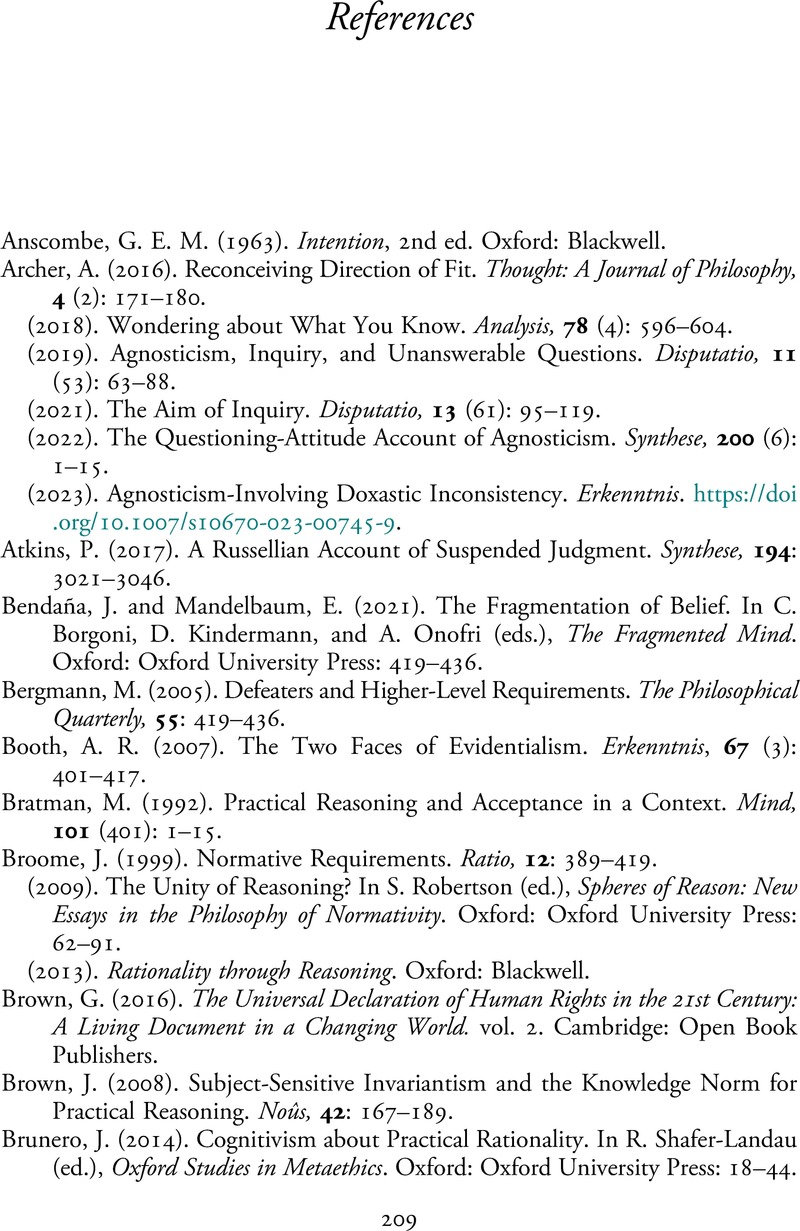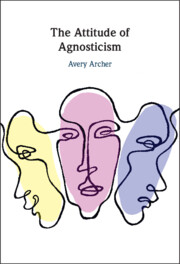Book contents
- The Attitude of Agnosticism
- The Attitude of Agnosticism
- Copyright page
- Dedication
- Contents
- Acknowledgements
- Chapter 1 Introduction
- Chapter 2 Criteria for a Satisfactory Account of Agnosticism
- Chapter 3 Competing Attitudinal Accounts of Agnosticism
- Chapter 4 The Questioning-Attitude Account of Agnosticism
- Chapter 5 Agnosticism and the Inquiring State of Mind
- Chapter 6 The Act-Attitude Account of Doxastic Neutrality
- Chapter 7 On the Non-existence of Practical Agnosticism
- Chapter 8 Agnosticism and Pragmatic Reasons
- Chapter 9 Agnosticism, Permissivism, and Peer Disagreement
- Chapter 10 Conclusion
- References
- Index
- References
References
Published online by Cambridge University Press: 14 March 2024
- The Attitude of Agnosticism
- The Attitude of Agnosticism
- Copyright page
- Dedication
- Contents
- Acknowledgements
- Chapter 1 Introduction
- Chapter 2 Criteria for a Satisfactory Account of Agnosticism
- Chapter 3 Competing Attitudinal Accounts of Agnosticism
- Chapter 4 The Questioning-Attitude Account of Agnosticism
- Chapter 5 Agnosticism and the Inquiring State of Mind
- Chapter 6 The Act-Attitude Account of Doxastic Neutrality
- Chapter 7 On the Non-existence of Practical Agnosticism
- Chapter 8 Agnosticism and Pragmatic Reasons
- Chapter 9 Agnosticism, Permissivism, and Peer Disagreement
- Chapter 10 Conclusion
- References
- Index
- References
Summary

- Type
- Chapter
- Information
- The Attitude of Agnosticism , pp. 209 - 213Publisher: Cambridge University PressPrint publication year: 2024



